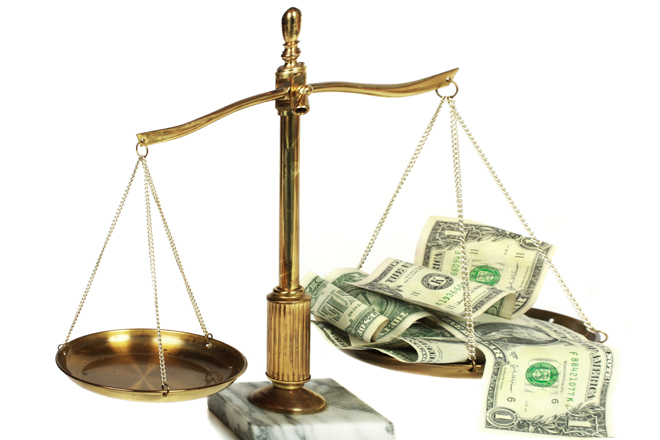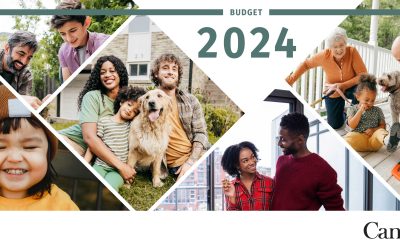Equality, of course, is one of the hallowed values of the post-Enlightenment West, celebrated in the French revolutionary slogan, “Liberty, Equality, Fraternity,” and in the American Declaration of Independence,[1] which asserts that it is “self-evident” that “all men are created equal,” as well as that all men have “inalienable Rights” such as “Liberty.” The Canadian Charter of Rights and Freedoms[2] asserts that “Every individual is equal before and under the law and has the right to the equal protection and equal benefit of the law without discrimination,” as well as asserting the “fundamental freedoms” of “conscience and religion,” “thought, opinion and expression,” “peaceful assembly” and “association.”
When the Levellers[3] in the mid-17th century lobbied for equality before the law, one objective was for the removal of special exceptions and benefits for aristocrats. In the following centuries, liberals called for equality of economic opportunity, a “level playing field” to give everyone a fair chance at succeeding in gaining wealth and income. The communists of the late 19th and 20th centuries went farther, aiming to take from producers to allocate to others according to their “need.” In the 21st century this has been simplified to a campaign for equality of result, for everyone ending up with the same amount of wealth, status, and position.
This is not a marginal voice, but rather the voice of President Obama and the Democrat Party, ranting against the “one percent.” Indeed, exit poll surveys[4] of Democrat voters showed that their first priority for the country was for the rich to pay more taxes! For the political left, and the ever more left-leaning Democrat Party, the priority is redistribution of wealth from those who produce and own it to preferred recipients, usually those likely to vote for the Democrat Party. The Occupy movement took the demand for redistribution of wealth to the streets and parks. Their slogan “We are the 99%” rejects the legitimacy of the wealthiest “one percent,” income disparity in the US, and economic inequality in general.[5]
So too in Canada, where the left-leaning Broadbent Institute argues that “Economic inequality, the uneven distribution of income and wealth, is one of the critical challenges of our time. The surge in inequality in Canada, which occurred primarily in the 1990s, remains at high levels today. … To reverse the trend, progressives must demand public policies that focus on shared prosperity.”[6] Similarly, the Canada Centre for Policy Alternatives says Canada must solve “one of the biggest challenges of our time: Worsening income and wealth inequality in Canada.”[7] The C.C.P.A. goes on to ask “How Much Income Tax Could the Top 1% Pay? The federal government has plenty of room to raise the taxes of Canada’s one percenters.”
The problem today is that self-appointed quality advocates have not maintained the balance between equality and other basic Western values, but have raised equality above all others. This is remarkable, because selecting equality as the sole ideal is a repeat of the major political movement of the 20th century: communism. It is “deja vu all over again”. Communists cathected equality above all, erasing in theory and in practice liberty, prosperity, and life. And eventually, with the party leaders and apparatchiks ruling over and suppressing the populace, erasing equality as well.
In a cross cultural study of selected, well-documented societies from around the world,[8] it was demonstrated that economic equality is negatively correlated with individual freedom: in societies where economic equality exists, individual liberty is highly restricted; conversely, in societies where there is a high level of individual freedom, there is a corresponding high level of economic inequality. The reason for this is clear: in state societies and peasant communities, people will not voluntarily share their wealth, and must be constrained and coerced by state or community institutions to share. This state and community coercion restricts individual liberty. There is, however, an exception in stateless tribal societies, where every man is a warrior and tribes and sub-tribal lineages often conflict over precedence and resources, individuals are willing to share their wealth because political and military support from fellow tribesmen is the most important guarantor of security.
The “take away” from this study is that full economic equality and full individual freedom are incompatible. The more you have of one, the less you have of the other. Advocates of full economic equality are also advocates of strong state measures to guarantee equality: confiscation and redistribution of wealth and property by government is the means to achieve greater economic equality. This is well illustrated by communist societies–the U.S.S.R., China under Mao, Cambodia under the Khmer Rouge, North Korea, and Cuba–where the economy was centralized, and freedom limited to conforming with the dictates of the communist party.
In contrast, political pluralism typical of liberal democratic societies is seen in multiple parties with multiple policies; liberal democracies are characterized by limited measures in support of economic equality, such as welfare state policies, and substantial but restricted freedom. The balance between economic equality and individual liberty is commonly the focus of political debate among the political parties in pluralistic liberal democracies, with some parties pushing for more equality, while others advocate for more individual freedom. This is seen in debates about taxes, trade unions, and also about speech and schools. The point is that advocating for greater equality is also advocating for less freedom.
Another value that might be tested by greater economic equality, or by the government measures to insure greater equality, is that of prosperity, economic well being. It has been hotly debated whether state control of the economy results in poor productivity and little innovation. The evidence from the communist countries is not encouraging. As the old soviet factory workers’ joke has it, “We pretend to work, and they pretend to pay us.” In China, the successive political and economic disasters of the “Great Leap Forward,” the “Regional Communes,” and the “Cultural Revolution,” led to the introduction of a “capitalist economy”, which, to use the technical term, has been going gang-busters. The specific question is the relationship between incentive to work, create and take chances, on the one side, and the opportunity to benefit economically, on the other hand. So far, the evidence suggests that freedom to benefit creates incentives to be productive. It follows that advocating for greater economic equality is, in fact, advocating against incentives for work and productivity, and thus against prosperity.
Whereas in the past, liberals focussed on equality among individuals, progressives today, such as the influential Canadian philosopher Will Kimlicka,[9] demand equality among categories of persons: gender, race, religion, sexual preference, ethnicity, national origin, language, etc. Collective equality requires members of each category included in various groups, equality here meaning “inclusiveness.” So that a school class without an East Asian, a police force without a Sikh, a football team without a Jew, a city council without an African-American, a ballet troupe without an Italian, a civil service office without a Muslim, a fire department without an employee who is homeless, a company board without a gay/lesbian/transsexual would be incomplete, racist, and unjust. The more minorities, and visible minorities, included in every sector of society, the more equal, and thus the more just. As regards gender, only equal numbers of women and men would be acceptable. (Although, no complaints have been heard that women in colleges make up 60% of the students, and larger majorities in law and medical schools.[10]) The fewer whites, men, middle class, heterosexuals, the better.
The cost of this new collective equality is substantial. One cost is the loss of individual identity, with racial, national, religious, sexual categories being imposed on individuals, whose individuality is reduced to the defining feature of the category. A second cost is merit, the ability to do the specified job. If people are picked because of their race, religion, gender, etc., rather than their capability to do the job, then weaker people will be picked because of factors irrelevant to the job. ‘Oh, yes, you scored highest, but we already have a Sikh, and now we need a lesbian.’ In other words, achievement, relative excellence, and potential for fulfilling the needs of the position are set aside for category labels. So advocates for collective equality are also advocates against individual identities, and against achievement, merit, and the quest for excellence.
Let us not imagine that programs to advance equality are cost free. The cost is paid in a loss of freedom, prosperity, individuality, achievement, and excellence.
[1] http://www.ushistory.org/DECLARATION/document/,
[2] http://laws-lois.justice.gc.ca/eng/const/page-15.html
[3] https://www.britannica.com/event/Leveler-English-history
https://en.wikipedia.org/wiki/Levellers
[4] http://www.nationalreview.com/article/444015/why-trump-won-voters-wanted-change-and-jobs-jobs-jobs?utm_source=Sailthru&utm_medium=email&utm_campaign=Daily%20Trending%20Email%20Reoccurring-%20Monday%20to%20Thursday%202017-01-19&utm_term=NR5PM%20Actives
[5]http://occupywallst.org/about/
https://en.wikipedia.org/wiki/Occupy_Wall_Street
[7] https://www.policyalternatives.ca/projects/growing-gap
[8] Philip Carl Salzman, “The Iron Law of Politics,” Politics and the Life Sciences 23, 2:20-39
[9] https://www.amazon.ca/Multicultural-Citizenship-Liberal-Theory-Minority/dp/0198290918/ref=sr_1_4?ie=UTF8&qid=1486600545&sr=8-4&keywords=kymlicka
[10]http://www.macleans.ca/education/uniandcollege/women-in-canada-embrace-higher-education-statcan-survey/
View the PDF version here: EF32EqualitySalzman



